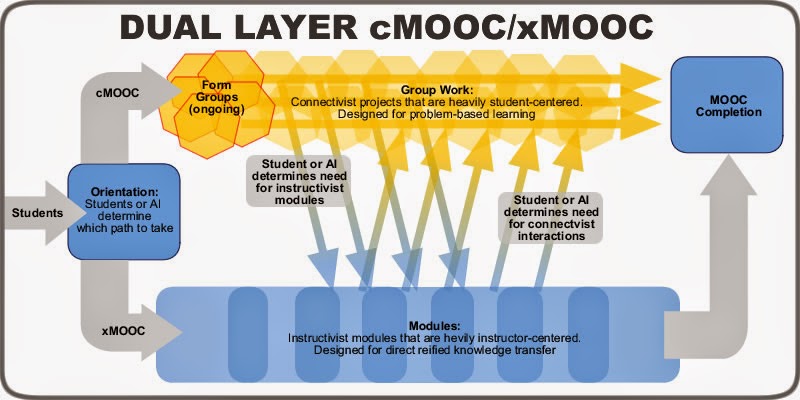DALMOOC, episode 1: In the beginning

Alright, I guess it's time to start really committing some braincells (and time) to DALMOOC, the Data, Analytics, and Learning MOOC that started last week on EdX. I wasn't going to attend this MOOC, to be honest about it, but seeing that George Siemens was behind this, I knew that there was an experimental aspect to it. Learning analytics is not new to me, my first MOOC (cMOOC) in fact was LAK11 (Learning Analytics and Knowledge) which I jumped into right after I finished my Applied Linguistics studies. So, now that I have cleared my plate of a number of coursera MOOCs (decided to give myself the "audit" status and just download the videos for later viewing - maybe in January or something), and that most of my assignments are done for EDDE 801, I can devote a little more time to writing in the open web about academic stuff and ponderings about academic stuff. So, what brought me to DALMOOC? The first thing that brought me to it is this xMOOC/cMOOC structure tha...





